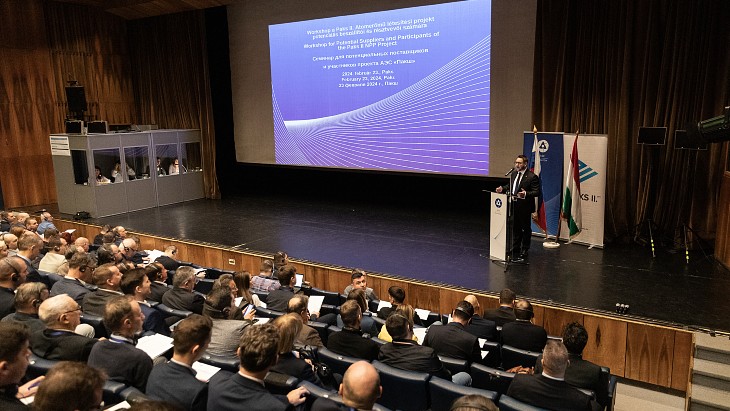The Paks II project was launched in early 2014 by an intergovernmental agreement between Hungary and Russia for two VVER-1200 reactors to be supplied by Rosatom, with the contract supported by a Russian state loan to finance the majority of the project. The construction licence application was submitted in July 2020 to construct Paks II alongside the existing Paks plant, 100 kilometres southwest of Budapest on the banks of the Danube river. The construction licence was issued in August 2022 and a construction timetable agreed last year which set out plans to connect the new units to the grid at the beginning of the 2030s.
The 2014 goal of the project was for 40% of the project to go to domestic companies, and the Russian side undertook to select 55% of suppliers in accordance with European Commission regulations.
Gergely Jákli, chairman and CEO of Paks II, told those attending that the expansion of nuclear capacity in Hungary was needed to improve security of supply, and to meet the European Union's climate change targets and said a significant market would open up for companies taking part in the project, because of the widespread plans for life extension projects - and new nuclear - in other countries around Europe and further afield.
Those attending were given information on the likely opportunities and requirements for suppliers, including nuclear qualifications, and the procedure for contracting and performing works at the site.
Vitaly Polyanin, from Rosatom's Atomstroyexport (ASE) and director of the Paks II construction project, said: "Currently, intensive preparations are under way for the pouring of the 'first concrete', which could take place in 2024. The Hungarian branch of ASE will do everything for maximum localisation and participation of all interested companies in the project."
The existing four units at Paks are VVER-440 reactors that started up between 1982 and 1987 and they produce about half of the country's electricity. Their design lifetime was for 30 years but that was extended in 2005 by 20 years to between 2032 and 2037. In December 2022, the Hungarian Parliament approved a proposal to further extend their lifespan, which means the plant could keep operating into the 2050s.
Paks II is the first Russian nuclear power plant construction project in the European Union, with Hungary deciding to press ahead with the project despite wider European Union sanctions imposed on Russia.















